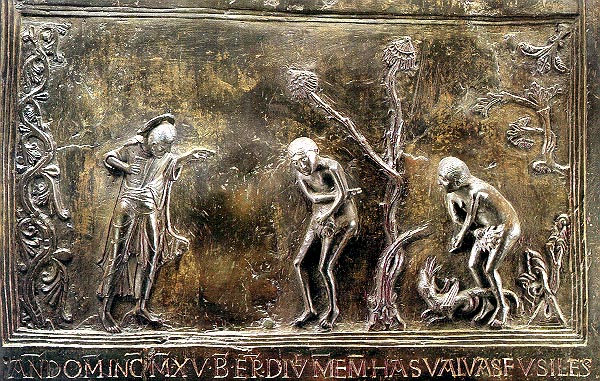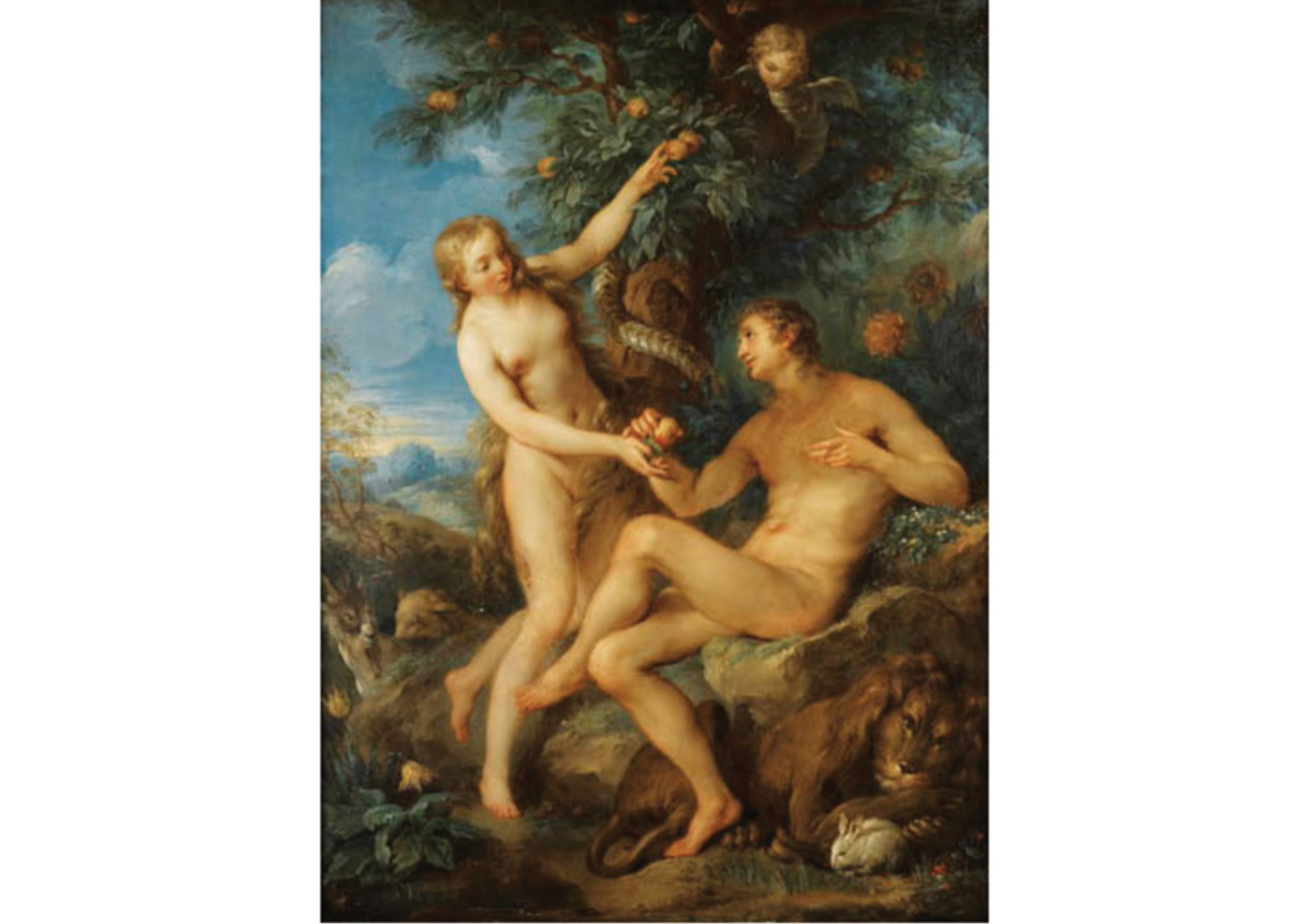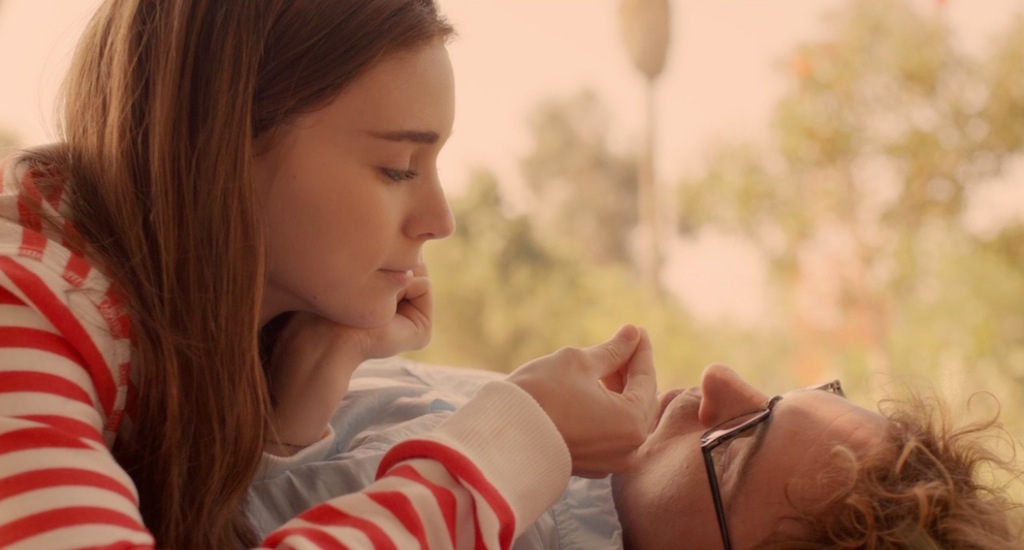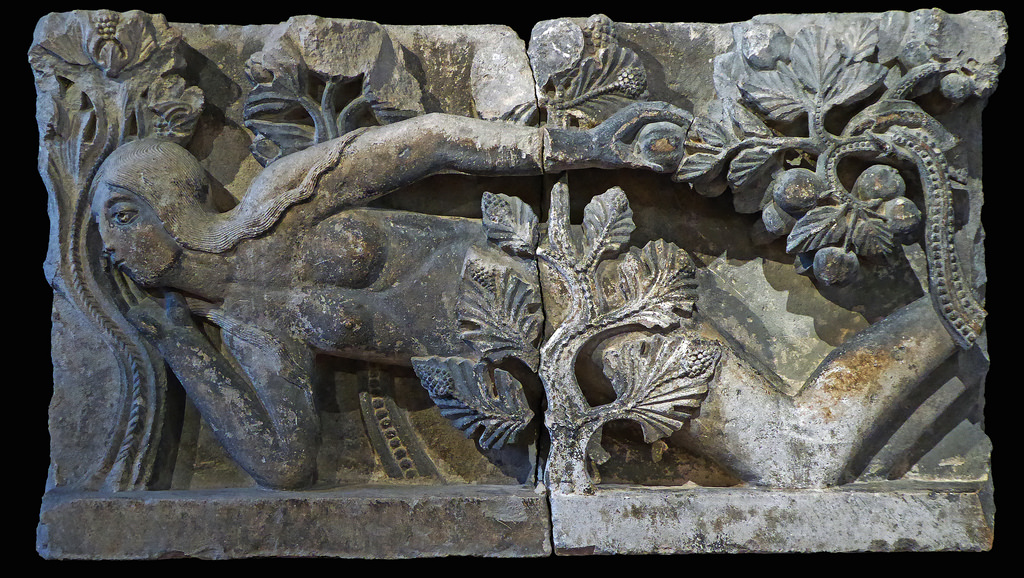Origin Stories and How They Shape Us
What are the events that are most significant in your life? If you were to name one, what would it be? Take a second, and think of one. I want you to keep it in the back of your mind as we consider the effects of a shared story that is exceptionally significant to humanity: the story of Adam and Eve.
Adam and Eve are fabled to be the progenitors of humanity, created from dust and bone by God. As the story goes, God created man- Adam- in his own image to look over the Earth and its creatures, and woman- Eve- to be his helper. The two live in the garden of Eden, a paradise where there is no violence. They are allowed to eat from any tree except one- the tree of the knowledge of good and evil.
“You are free to eat from any tree in the garden; but you must not eat from the tree of the knowledge of good and evil, for when you eat from it you will certainly die.” - Genesis 2:16-17
The fall of mankind occurs when a serpent tempts Eve to eat from the tree. She eats some of it, then gives the rest to Adam, who also eats it. And it is then that their eyes are opened. They begin to feel shame for their nakedness, and are banished from the garden of Eden for their sin. God curses them both, saying to Eve:
“I will make your pains in childbearing very severe with painful labor you will give birth to children. your desire will be for your husband, and he will rule over you.” - Genesis 3:16
And to Adam:
“Cursed is the ground because of you; through painful toil you will eat food from it all the days of your life. It will produce thorns and thistles for you, and you will eat the plants of the field. By the sweat of your brow you will eat your food until you return to the ground, since from it you were taken; for dust you are and to dust you will return.” - Genesis 3:17-19

In The Rise and Fall of Adam and Eve, Stephen Greenblatt explores this story- why it has lasted through the test of time, and how its interpretation has changed over centuries. He argues that the story captures the struggles of humanity:
“The story of Adam and Eve speaks to all of us. It addresses who we are, where we came from, why we love and why we suffer… It capures the strange way our species treats work, sex, and death- features of existence that we share with every other animal- as objects of speculation, as if they were contingent on something we have done, as if it could all have been otherwise.”
The sentiments in the last sentence are particularly interesting- and lightly touches on the awareness of mortality that is unique to humanity. Death has largely been regarded as a senseless violence that is inflicted upon us- one in which we have no control or involvement. In many religions, stories revolve around the explanation of this imminent event. In the story of Adam and Eve, we are the direct cause of our own demise. But the reason we tell all these stories is this:
“Something happened at the beginning of time- some history of decision, action, and reaction- that led to the way we are, and if we want to understand the way we are, it is important to remember and retell this story.”

I want you to think about the significant event that you recalled at the beginning of this post. If it was a negative event, why do you think it had such an impact on your life? Was it a situation where you felt like you were in control? Or felt like you could have had control, but didn’t? Is it an event that you completely understand? Or is there room for speculation?
It is common for people to seek closure in the aftermath of negative events. Without explanation, the things that make us feel bad seem senseless and meaningless, which leads to an endless echo of “why?”. Why did this happen to me? And what could I have done about it? How does this significant event have meaning in my life?
“Humans seem to be the only animals on earth that ask themselves how they came to be and why they are the way they are. We could represent this uniqueness as an achievement, a mark of distinction, as perhaps it is. But it would be easy enough to seize upon it instead as a sign that we are lost- disoriented, uncomfortable in our own skin, in need of an explanation.”
In significant events in general, a specific context is created around your sense of self. It is easy to think of yourself in relation to the things that you experience, and the things that have happened to you. We try to understand ourselves by understanding the events in our past.
I’d like to focus on this context that we create for ourselves. It holds a great power- the power to shape our decisions. However, just like any tool, it has strengths, weaknesses, and sometimes unintended side effects.
In Adam and Eve, the great struggle and purpose of mankind is established. This story, largely symbolic, was originally regarded as allegorical in its earlier interpretations. However, over time, as people scrutinized it and adapted it to their own uses in their lives, the interpretation of it changed.
Particularly, Augustine, a theologian who lived around 370 CE, began to push for a literal interpretation of the story of Adam and Eve, which became largely popular. This acceptance of the literal interpretation was incentivized by many of the misogynistic philosophies of the time, which benefitted from the literal interpretation of God’s curse on women that men would rule over them.
Over time, the origin of these shared beliefs was forgotten, and was accepted as fact by many religious communities.
In 1945, alternative stories written around Adam and Eve were found in Luxor. These stories, written shortly after the first written versions of Adam and Eve, described the fall in a different light. “The Apocalypse of Adam” is a sequel to Adam and Eve, written in first person, where Adam writes about the events in the garden of Eden. It offers an alternate perspective, where women are not the ones who led to the fall of mankind, but rather the benefactors of all knowledge. “We were higher than the god who had created us”, he writes, describing their state after receiving knowledge from the tree of good and evil.
The point I want to make here is that these stories have provided comfort and motivation toward moral aspirations for centuries, but its meaning is subject to interpretation. And these interpretations have made historical impacts in both harmful and beneficial ways.
I am also trying to draw a clear parallel to our personal origin stories, and the importance of how we choose to understand them. “The past,” as Samantha says in the 2013 movie Her, “is just a story that we tell ourselves.”

It is important to note that interpretation is a subjective activity, and because of this, it is something that you have complete power over. How you choose to create meaning from the events in your life is just that- a choice.
I want to leave you with an alternate story about early humanity, one that vanished with the collapse of the cities of Mesopotamia: The Epic of Gilgamesh.
The Epic of Gilgamesh describes a king named Gigamesh, and a wild man named Enkidu who was created by the gods to stop Gilgamesh from oppressing the people of Uruk. Enkidu arrives to Uruk, and challeges Gilgamesh to a competition, which Gilgamesh wins. The two become friends, and they go on many adventures together. But as a punishment of the their adventures, the gods sentence Enkidu to death.
Gigamesh- desolated by the loss of his friend, and suddenly aware of his own mortality- takes a long and perilous journey in search of eternal life. He discovers that he cannot live forever, but that hummankind will.
As Stephen Greenblatt describes it:
“This is the great epic that circulated in the Near East for many centuries before the Hebrews decided to write their account of humankind’s earliest days: a tale of joyous sexual initiation; a gradual ascent from wildness to civility; a celebration of the city as a great good place; a difficult, reluctant acceptance of mortality; above all, a life that has at its center the experience not of marriage and family but of deep same-sex friendship.”
